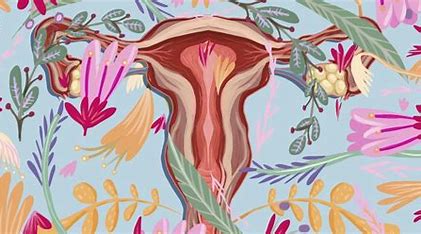The vulva, the external part of the female genitalia, is a complex and sensitive area that can experience various health issues. One of these issues is the closing of the vulva opening, also known as "vaginal narrowing" or "vaginismus". While it may not be as common as other gynecological conditions, it can have serious consequences for a woman's physical and emotional health.
Causes of Closing of the Vulva Opening
Several possible causes of closing of the vulva opening include:
-
Scar Tissue Formation : This can occur due to injury during childbirth, a surgical procedure such as an episiotomy (a cut made during childbirth to widen the passage), or another form of trauma to the area.
-
Chronic Infections : Prolonged infections of the vulva or vagina can lead to inflammation and scar formation, which can narrow the opening.
-
Hormonal Changes : Hormonal fluctuations can lead to changes in the structure of the vulva, resulting in narrowing of the opening.
-
Psychological Factors : Anxiety, stress, or a history of sexual trauma can lead to vaginal spasms and the unconscious contraction of the pelvic floor muscles, making penetration difficult or painful.
Consequences of Closing of the Vulva Opening
Closing of the vulva opening can have several consequences, including:
-
Pain during Intercourse : Women with vaginal narrowing may experience pain during penetration, which can lead to reduced sexual pleasure and relational issues.
-
Urination Problems : If the vulva opening is too narrowed, it can cause problems with urination, including pain or difficulty emptying the bladder.
-
Emotional Stress : Experiencing pain or discomfort during sexual activity can lead to anxiety, shame, and a negative impact on a woman's self-esteem.
Treatments for Closing the Vulva Opening
Fortunately, there are several treatments available for women suffering from closing of the vulva opening, including:
-
Vaginal Dilation : This involves gradually stretching the vulva opening using dilators of various sizes.
-
Topical Medication : Creams or gels containing estrogen may be prescribed to help the tissue of the vulva heal and prevent further narrowing.
-
Pelvic Floor Physiotherapy : A pelvic floor physiotherapist can be enlisted to strengthen and relax the muscles around the vulva.
-
Psychological Therapy : For women with psychological factors contributing to their vaginal narrowing, therapy can help address these issues and learn to cope with anxiety and stress.
At My Own Filo, we recognize the complexity of vaginal health issues and offer support and guidance to women dealing with closing of the vulva opening. Our expert professionals are ready to listen, advise, and provide personalized treatments aimed at restoring your well-being.
Additionally, we offer practical training sessions in a relaxed environment, allowing women to work on resetting their bodies if necessary. These sessions are designed to help improve physical and emotional health and provide the tools needed to thrive.
Closing of the vulva opening is a complex condition with various causes and consequences. With the right diagnosis, treatment, and support, women can experience an improvement in their symptoms and restore their quality of life. It's essential for women to openly communicate with their healthcare providers about any issues or concerns regarding their sexual health so they can receive the proper support and treatment.





